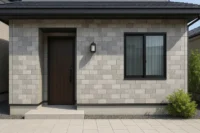ICF Home Designer: Sustainable & Strong Home Solutions
Published: 9 Aug 2025
Introduction
In construction and modern architecture, the elements of strength and sustainability must be considered during the design phase of a home. One approach that integrates these two crucial considerations is the use of Insulated Concrete Form ICF Home Designer. ICF technology uses advanced construction techniques to enhance both the energy efficiency and eco-friendliness of a residential home. ICF homes are becoming popular as they provide energy efficiency and cost savings over time, as well as longevity and durability.
Exploring further in this article, I will outline the benefits of the ICF technology along with the reasons why you should consider an ICF home for your next project. We will discuss the construction, materials and design options, along with the advantages of ICF construction. This information should enable homeowners and architects alike to make well-informed decisions for their planned building projects by understanding the possibilities with ICF home solutions.
What is an ICF Home?
ICF or Insulated Concrete Form homes employ a construction system wherein a concrete core is sandwiched between insulation on both sides. This system results in a home that is energy-efficient, durable and highly insulated. Generally, ICF houses are built using interlocking blocks or panels made of foam insulated materials which are subsequently filled with concrete. The foam serves as a thermal insulator while the concrete solidifies to form the structural core of the wall.
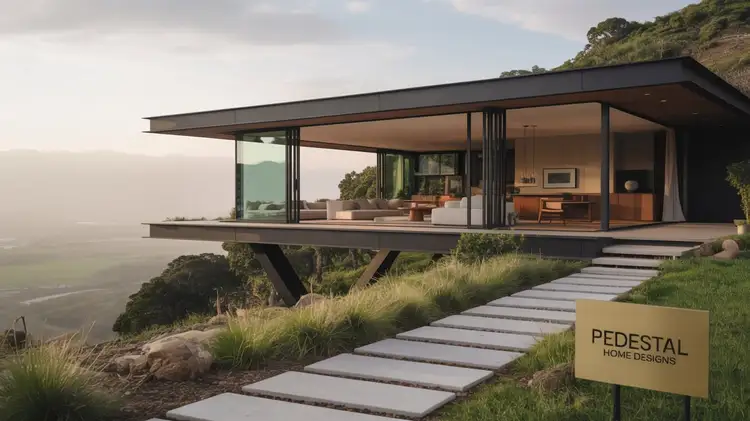
ICF construction method applies to the whole house, including walls, foundations and roofs, creating an energy-efficient structure. This unique construction strategy improves the home’s energy efficiency and assists in lowering the costs of heating and cooling over time.
Important Aspects of ICF Home Design
Sustainability and resiliency, strength and efficiency. The following characteristics stand out with ICF home design:
1. Energy Efficiency
ICF home designs are known to be remarkably energy efficient. Temperature fluctuations and the need for heating and cooling systems is greatly reduced because of the foam insulation and concrete. ICF homes tend to receive high energy ratings. Due to the construction techniques used, these homes can maintain comfortable indoor temperatures year-round with minimum reliance on energy-consuming systems like air conditioning and heating.
2. Durability
ICF homes are undoubtedly built to last. ICF homes offer concrete core which provides superior structural integrity and make homes more resistant to a multitude of environmental factors. These homes have the ability to endure extreme weather such as hurricanes, tornadoes and even earthquakes. In addition to that, noise tends to be greatly reduced with the use of foam insulation from the exterior and interior, making these homes much quieter.
3. Sustainability
ICF home designs are environmentally sustainable. The foam used in ICF construction comes from foam, which is a recycled product. Moreover, the energy-efficient character of the homes minimizes the carbon footprint. Selecting ICF construction maximizes the homeowner comfort and efficiency during the entire lifetime of the house while minimizing the environmental impact.
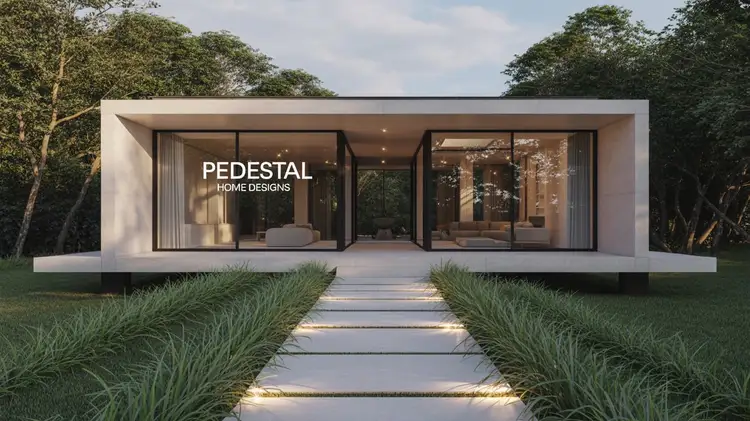
4. Soundproofing
Like all other ICF homes, the one with thick and insulated walls also protects its inhabitants from external and internal noise. Therefore, the ICF homes are suitable for families who seek quietness and privacy. If one lives in a really noisy neighborhood, he or she will greatly appreciate the superior soundproofing capabilities ICF construction has to offer.
5. Fire Resistance
Due to the fire concrete core, ICF walls have a high-grade fire resistance. In addition, the foam put in ICF walls is fire resistant to some level, thus increasing the safety of your house. This type of fire-resistant construction highly assures the safety of the several fire hazard areas.
How ICF Homes Compare to Traditional Homes
ICF homes have noticeable advantages when compared with traditional wood-frame houses. Below are some noteworthy differences to consider:
1. Energy Consumption
During extreme cold and hot temperatures, traditional wood-frame homes tend to use more energy in comparison to ICF homes. This increased expenditure is often encountered due to the insufficient insulation and the limited thermal mass and wood. ICF Homes, on the other hand, foam and concrete enhanced ICF homes benefit from foam insulation, making them more energy efficient.
2. Structural Integrity
Although wood-frame homes are strong, they can be easily damaged by Hurricanes, Tornadoes, Earthquakes or any other weather-related events. On the flipside, these homes are not prone to extreme weather due to being built from concrete which provides a far more solid and durable structure. ICF homes excel in this regard since they are normally built from concrete.
3. Maintenance
Due to traditional homes being made out of wood, there is a need for frequent repainting, sealing, pest infestation wood rot addressing and other forms of maintenance. Due to ICF homes being made out of concrete and foam, ICF homes are much less prone to maintenance.
4. Longevity
Considered traditional wood-frame houses, these types of homes have a longer expected lifespan than modern houses. This is because they are more susceptible to weather, pests and constant upkeep. ICF homes, on the other hand, are built to endure centuries of usage. Weathering throughout the years will have done little to nothing to affect the home, due to the robust construction of ICF. The home shall be in great shape for the years to come.
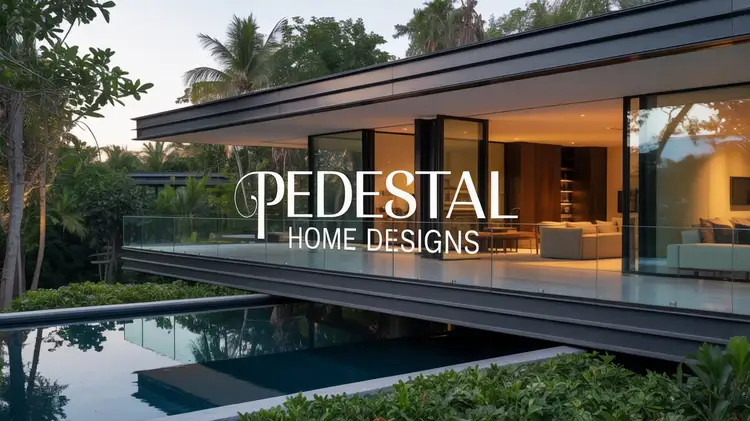
Design Considerations for ICF Homes
As with any type of architectural structure, there is an inherent need to meet a person’s needs and desires. This is also the same case for when building an ICF home. Below are some vital aspects to reflect on.
1. Floor Plans
ICF homes can come in various shapes and sizes. From compact single-story houses to more spacious multi-level buildings. ICF constructions is so flexible that it caters to almost every desire of the homeowner. Open-concept ICF builds are common, but traditional multi-room layouts have also proven to be quite popular.
2. Exterior and Interior Finishes
The possibilities to finish ICF houses are endless. Exterior-wise, materials such as stucco or bricks can be used, while the siding can give different looks to the home. Different styles of flooring can also be chosen for the inside, such as tiles or hardwood. Drywall can also be used to match the color of the homeowner’s choosing.
3. Placement of Windows and Doors
The insulating concrete form (ICF) walls are thick and solid, meaning there should be a strategy for the placement of windows and doors. Energy efficiency and natural light can be maximized with the correct placement of windows. Work with your builder to ensure these elements are integrated into the home design so that the house is aesthetically pleasing and properly lit.
4. Roofing Options
Houses built with ICFs can have flat, sloped or pitched roofs, making a variety of roofing options available. The roofing materials selected must also suit the design of the house while providing proper insulation and maintaining energy efficiency.
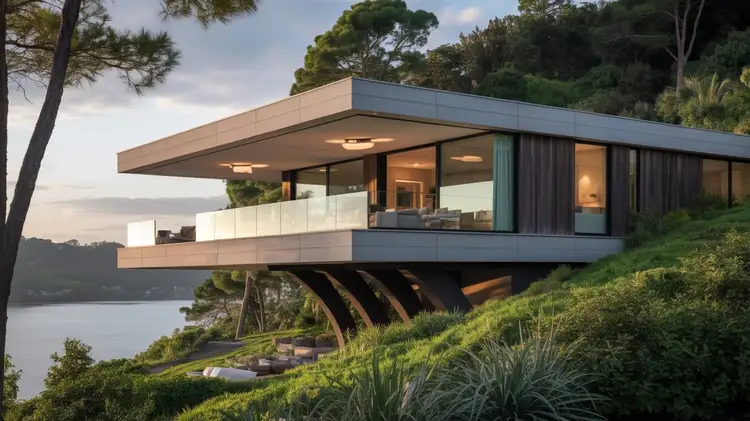
Advantages of Hiring an ICF Home Designer
Working with a qualified ICF home designer may guarantee your home’s construction is done precisely and in a timely fashion. Here are some expert reasons that support you hiring a designer:
1. Expert Knowledge
ICF home designers will have in-depth knowledge of ICF construction techniques and materials. They are able to guide you through all elements of ICF home design and find the best options to meet your requirements.
2. Customization
A qualified ICF designer will collaborate with you to capture your vision for your home and produce a design that is both appealing to the eye and functional. An ICF designer can produce a modern or traditional design based on your preference.
3. Project Management
Home designers using ICF technology offer project management services, which often come bundled with other home design services. They take responsibility in meeting the timeline and budget which has been set for the project. The designer also collaborates with other stakeholders such as contractors, suppliers and other professionals to make certain that the construction phase is seamless.
4. Long-Term Savings
With an ICF home designer, you can maximize the energy efficiency of your home, which will save you money in the long run. Ultimately, the home will provide you with long-term savings in utilities and maintenance costs, making it a beneficial investment in the future.
The Environmental Impact of ICF Homes
ICF homes are an excellent choice for eco-conscious homeowners looking to reduce their environmental footprint. The construction process and materials used in ICF homes contribute to sustainability in several ways:
1. Energy Efficiency
As we have seen, one of the advantages of ICF homes is getting a highly energy-efficient home and lowering the overall carbon footprint of your home. Energy used for heating and cooling ICF homes will reduce the use of fossil fuel and the emission of greenhouse gasses, aiding in the fight against climate change.
2. Sustainable Materials
The concrete used in construction can be sourced locally and ICF blocks and panels are made from recyclable materials. This supports sustainable practices as well as reducing emissions linked to transportation.
3. Long-Term Sustainability
The construction of ICF homes involves using durable and long-lasting materials, which lessens the need for frequent repairs or replacements, thus saving resources over time. The environmental impact of construction is spread out over many years, which is beneficial for the environment.
FAQs
ICF (Insulated Concrete Form) construction uses foam forms that are filled with concrete to create strong and sustainable buildings. It is a common construction method for residential structures because it provides necessary strength and insulation.
ICF homes are energy-efficient due to the thick insulated walls which help maintain regulated indoor temperatures, lessening the need for heating and cooling systems. This ultimately results in lower energy consumption.
An ICF home is extremely durable, environmentally-friendly, energy-efficient, low maintenance, soundproof, fire resistant and provides better insulation. Building an ICF home offers all these added benefits.
Although ICF homes have a greater upfront investment than traditional wood-frame houses, their energy efficiency and durability yield long-term cost effectiveness. Reduced utility expenses and maintenance needs make the initial investment worthwhile.
ICF homes are constructed to have proprietary longevity, often outliving traditional wood-frame houses. Homes with a concrete core are built using ICF technology and feature long-lasting materials and additional strengthening. Therefore, they are able to maintain structural integrity for many decades.



